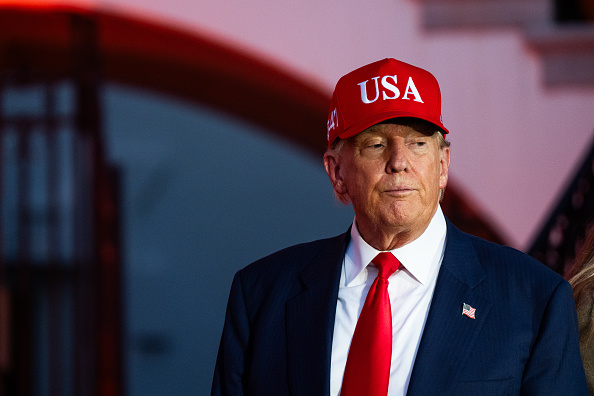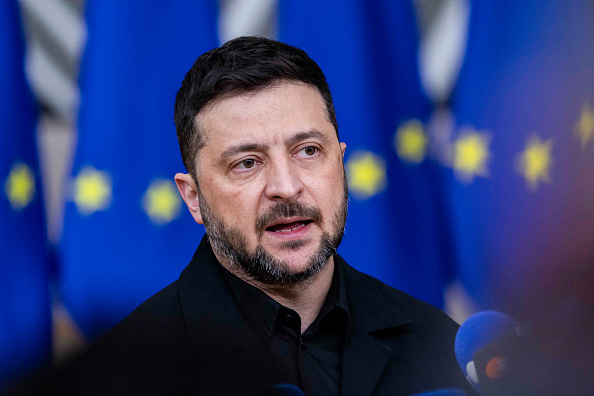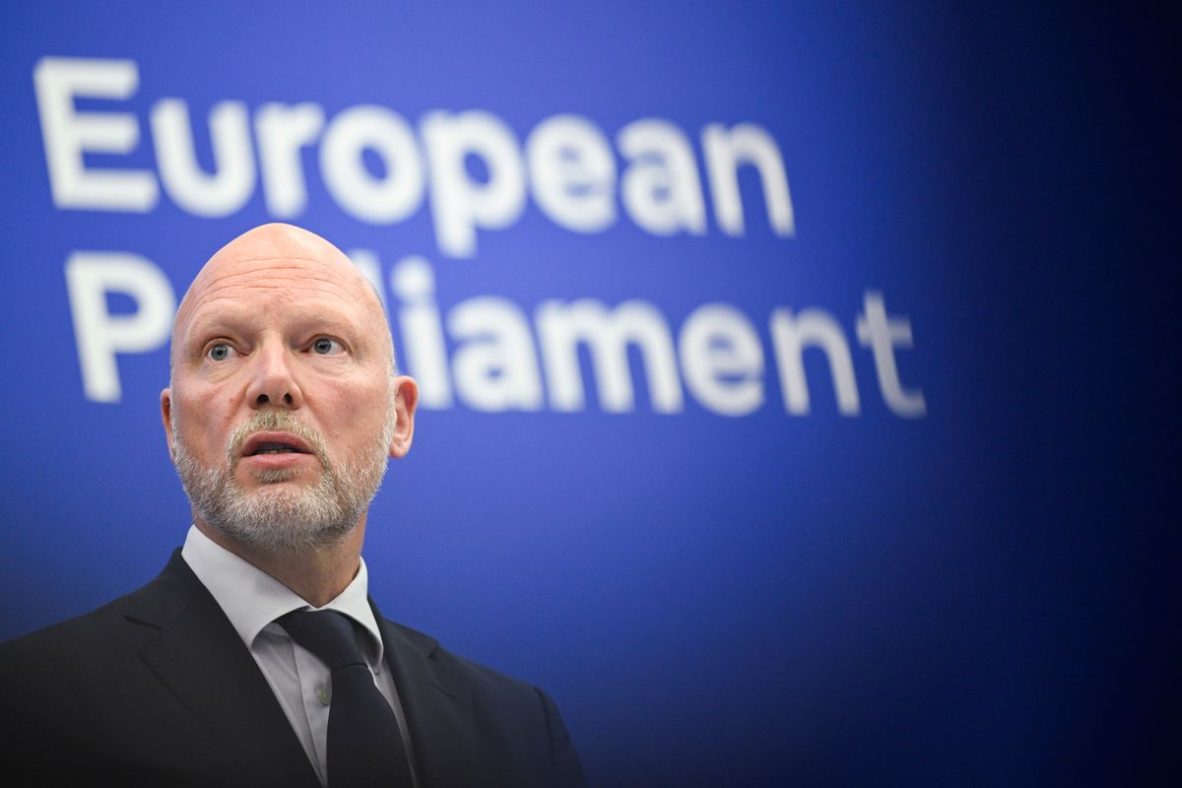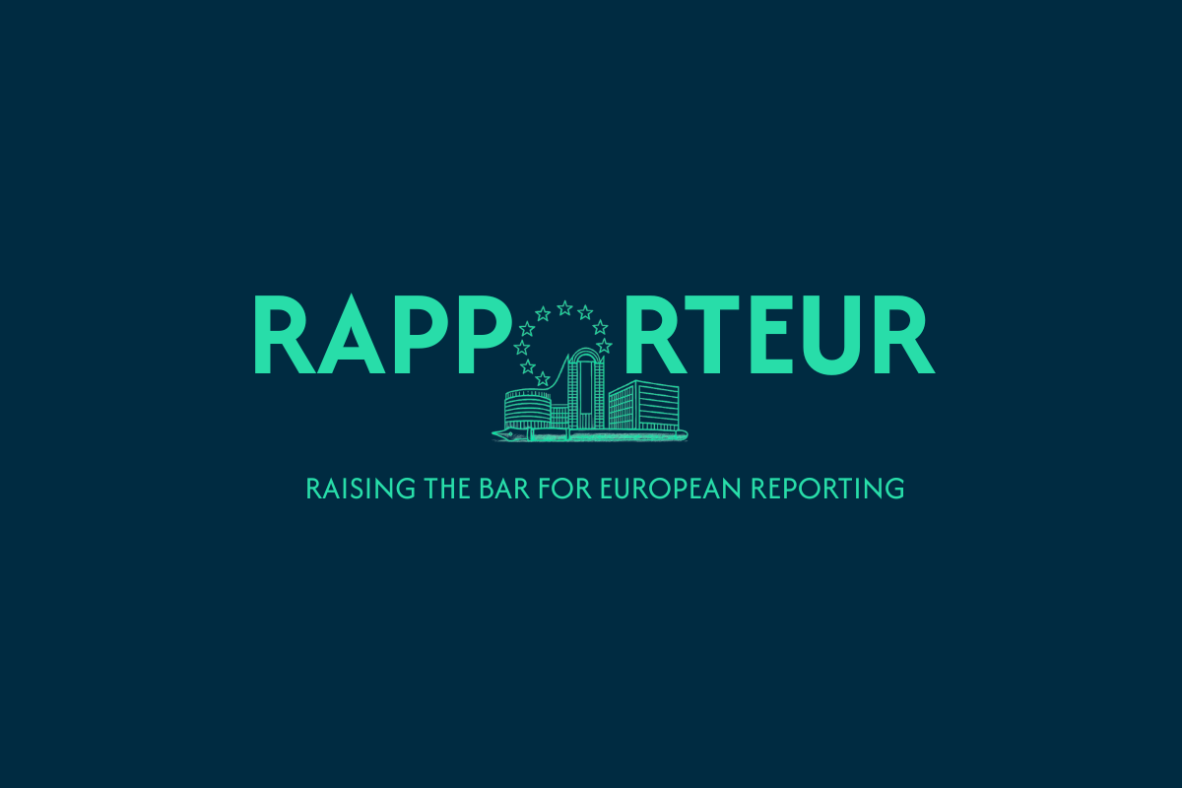EPP and S&D get therapy
In today’s edition: the EPP and Socialists race to strike a deal on supply-chain rules before next week’s crunch vote, EU countries clash over merging farm and regional funds in the next MFF, and Ombudsman Teresa Anjinho faces scrutiny over promoting her top aide
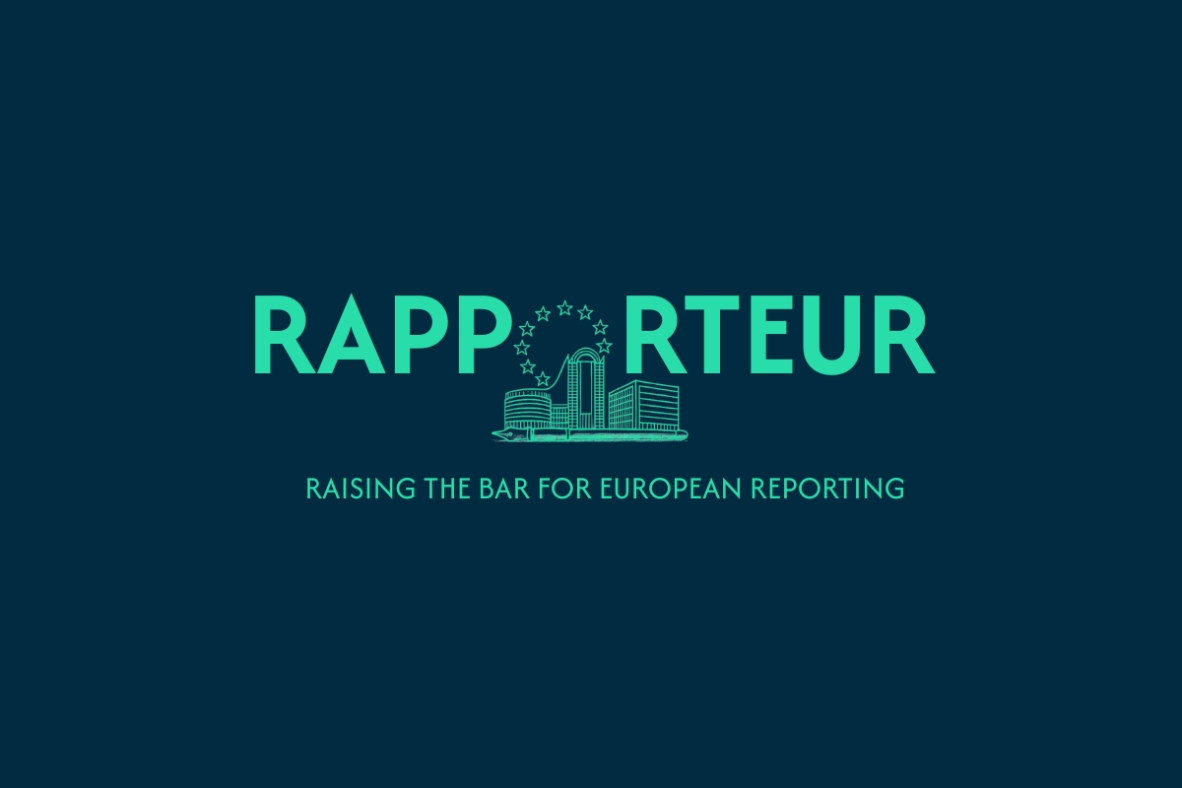
We’re taking a short break through Armistice Day in Belgium. Rapporteur will return to your inbox on Wednesday, 12 November. In the meantime, look out for a special edition on Monday morning with deeper reporting and analysis – landing, as usual, at 7 a.m.
Welcome to Rapporteur. This is Nicoletta Ionta, with Eddy Wax in Brussels.
Got a story we should know about? Drop me a line.
Need-to-knows:
- Omnibus: EPP and Socialists in last-ditch talks to salvage supply-chain rules
- Budget: EU capitals split over merging farm and regional funds in next seven-year plan
- Parliament: Ombudsman Teresa Anjinho under scrutiny over promotion of top aide
Subscribe
Today’s edition is powered by FuelsEurope
Tour d’Europe proves renewable fuels are a solution now
The Tour d’Europe proved that renewable fuels are real, scalable and ready now. Across 18 countries and 80,000 km, they achieved up to 87% CO₂ reductions. Certified, compatible and deployable today – renewable fuels must be part of Europe’s journey to climate neutrality. Read the Final Report here.
From the capital
The centre-right EPP and the centre-left S&D are back on the couch, trying to talk it out after weeks of failed political couples’ therapy.
With a make-or-break vote on supply-chain rules looming next week, the two blocs anchoring Ursula von der Leyen’s majority are testing whether their relationship can still function – and a test on which the Parliament’s credibility as a whole may also depend.
In late October, several socialist MEPs rejected an EPP proposal to ease specific reporting requirements for firms, a move widely seen as another sign of the strained ties between the two groups.
With the file returning to the floor at next Thursday’s mini-plenary in Brussels, the EPP is scrambling for numbers. Group leader Manfred Weber has gone into full mobilisation mode, personally urging MEPs to attend the vote, which he called “absolutely mandatory” and “essential” in an internal email seen by Rapporteur.
EPP negotiator Jörgen Warborn on Tuesday initially binned a compromise put forward by Socialist lead René Repasi and coordinated with liberal Renew and the Greens. But yesterday, the two sat down again, several parliamentary sources confirmed.
Repasi’s latest offer would exempt companies with fewer than 3,000 employees from due diligence rules, in exchange for softening civil liability provisions for larger firms, according to a draft compromise and emails seen by Euractiv.
“For the sake of compromise, we should do everything we can till the very last minute,” Repasi told Rapporteur on Thursday.
Warborn confirmed that discussions are ongoing. “We call on other groups to join the EPP and take responsibility for European business,” he said in a statement, still hoping to win the vote on his own terms.
And there’s a flicker of hope for the relationship. The von der Leyen majority struck a late-night deal on another contentious file, the 2040 climate law, on Thursday. The EPP, S&D, Renew, and Greens agreed on a joint position, two sources close to the talks told my colleague Nikolaus J. Kurmayer.For now, the centre’s fragile romance limps on – with another week of policy counselling booked before the next blow-up.
Trying to repair the reparation loan
Belgian and European Commission officials are set to hold technical talks today on the “reparation loan” scheme for Ukraine – an idea that was infamously stalled by Belgian premier Bart De Wever at last month’s European Council in Brussels.
The meeting comes as the EU executive drafts an “options paper” to sustain Kyiv’s war effort, as mandated by EU leaders at the October summit. The loan remains the Commission’s preferred option to plug Ukraine’s colossal budget gap, estimated at $65 billion for 2026 and 2027.
But Belgium’s concerns about the financial and legal risks of the scheme – which Moscow claims it amounts to outright theft – have remained unresolved since the informal Council summit in Copenhagen last month, according to people familiar with the matter.
No high-level political meetings are currently planned, though officials on both sides remain in regular contact.
Scoop: What capitals want from the EU’s new housing plan
EU countries have reshaped their stance ahead of a possible December deal on housing – an issue long championed by the Socialists and revived by von der Leyen in her State of the Union address. It reached EU leaders’ agenda at last month’s Council meeting, and the Commission’s affordable housing master plan is expected to surface in mid-December.
Capitals have already warned Brussels not to overreach. In the latest draft of Council conclusions seen by Rapporteur, EU countries support broad coordination on financing, construction, and social inclusion – but keep housing policy squarely in national hands.
The text now calls for using funds freed up in the midterm Cohesion Policy review to boost affordable builds and urges the Commission to streamline state aid rules so that support for social housing can move “faster and simpler.”
Gone is the market-first language from the first draft; in its place: talk of public financing, revolving funds, and cost-based rents.
Watchdog under watch
Ombudsman Teresa Anjinho’s decision to promote her own head of cabinet to her office’s most senior civil service role raised eyebrows in a closed-door meeting at the European Parliament on Thursday, according to my colleague Elisa Braun.
During the session of the budgetary control committee, the Ombudsman’s Office was represented by Marie-Pierre Darchy, Director of Administration.
One lawmaker pressed Anjinho on the appointment. The Ombudsman’s Office defended the promotion of Lampros Papadias, a Greek lawyer who joined the Ombudsman’s office in March, as “very transparent and independent”.
Not all were convinced. “He went from head of unit to secretary-general, basically jumping seven grades and doubling his salary in months,” one MEP said, noting that the supposedly “independent” selection panel included both Anjinho and her former secretary general Ian Harden, appointed to the role by Anjinho herself.
A spokesperson for the Ombudsman told Euractiv there was “no personal connection between the selection board members and the candidates in this case.”
Knives out at a CAP fight
EU countries sparred late into Thursday evening over whether to carve farm subsidies out of the Commission’s plan to merge them with regional funds in the next seven-year EU budget, according to my budget-savvy colleague Jacob Wulff Wold.
A draft Council document shows Denmark rebuffed calls – echoing Parliament’s position – to exclude agricultural subsidies from the new national plans earlier in the week. Central and eastern European countries pressed yesterday to include the option of a structural change in the so-called negotiating box, the list of issues to be decided by EU leaders, but Germany, Sweden, the Netherlands, and Finland pushed back hard.
With MEPs demanding a stand-alone CAP, countries are now watching what concessions the Commission might put on the table. Von der Leyen will sit down with Parliament chief Roberta Metsola on Monday to try to head off a brewing rebellion over the EU’s long-term budget.
Pipe down
The EU’s first informal talks on a Russian gas ban wrapped up early on Thursday – but without any real breakthrough. The quick finish underscored a deep split between national capitals keen to spare oil from sanctions and move slowly, and MEPs pushing to ditch both oil and gas without delay.
Meanwhile, Moscow is quietly tightening its grip again. With most of its pipelines to Europe destroyed or shut down, Russia’s TurkStream line is pumping record volumes through Serbia into the EU – keeping Hungary and Slovakia hooked. Russian LNG deliveries to Europe also jumped by a quarter in October compared with September.
The capitals
BRUSSELS 🇧🇪
Belgium’s main airport was briefly shut for the third time this week after another drone sighting on Thursday night, amid a spate of mysterious incursions over Belgian airspace, including near military bases housing nuclear assets and F-35 jets. Authorities are investigating the source of the drones, which have triggered several airport closures and security alerts.
STOCKHOLM 🇸🇪
Far-right Sweden Democrats leader Jimmie Åkesson has been granted sweeping authority to block any government that excludes his party, according to an internal plan seen by Expressen ahead of the 2026 election. The document, to be approved at the party’s congress in Örebro, also empowers Åkesson to appoint his own negotiation team. Party secretary Mattias Bäckström Johansson said the party would vote against any prime ministerial candidate unless included in government.
BERLIN 🇩🇪
Germany’s prostitution laws are under renewed scrutiny after Bundestag President Julia Klöckner called the country the “brothel of Europe” and Health Minister Nina Warken backed banning the purchase of sex. Both urged adoption of the Nordic model, which penalises buyers but not sex workers, arguing that Germany’s liberal framework has failed to protect women. Researcher Julia Wege said the 2002 law empowered pimps and left migrant women vulnerable, adding that “strong signals” are needed to reset boundaries.
MADRID 🇪🇸
Spain’s National Court has opened an investigation into alleged undeclared cash payments from the ruling Socialist Party (PSOE) to former minister José Luis Ábalos and his aide Koldo García. The two already face trial before the Supreme Court over a kickback scheme linked to rigged public tenders. Judge Ismael Moreno launched the probe on Thursday to examine discrepancies in the declared sums, while the PSOE maintains that the €1 million in “cash advances” were duly audited.
ATHENS 🇬🇷
US energy giant ExxonMobil, with Greek firms HELLENiQ Energy and Energean, signed an agreement on Thursday to begin gas exploration in the northwestern Ionian Sea, near Italy’s Exclusive Economic Zone. The project is Greece’s first major hydrocarbon search in nearly four decades and could bring partial energy independence by 2027 if viable reserves are found. US firms already hold exploration contracts off Crete, expanding their Eastern Mediterranean footprint.
PRAGUE 🇨🇿
Outgoing Czech PM Petr Fiala has condemned the election of far-right leader Tomio Okamura as Speaker of the Chamber of Deputies, calling it a “huge mistake” that places a “xenophobic” figure at the head of the lower house. Okamura, who leads the Freedom and Direct Democracy party, was elected with backing from the populist ANO party and the right-wing Motorists movement, which now hold a majority. His record includes inflammatory remarks about minorities and Islam.
BRATISLAVA 🇸🇰
Defence Minister Robert Kaliňák has accused law enforcement of inaction over criminal complaints concerning Slovakia’s 2022 transfer of MiG-29 fighter jets and ammunition to Ukraine. Speaking on the pro-Russian channel Infovojna, Kaliňák said investigators were “too slow” to pursue alleged irregularities. The European Public Prosecutor’s Office has opened an inquiry, while former defence minister Jaroslav Naď, who authorised the transfers, has denied any wrongdoing.
Schuman roundabout
THIS PLUX IS ON FIRE: On a misty November night, Brussels’ trainees watched their usual watering hole go up in flames. More than 20 firefighters were dispatched on Thursday evening after grease in an exhaust pipe at a restaurant near Place de Luxembourg ignited. Fortunately, only material damage was reported after authorities cleared the scene a few hours later, according to a Euractiv reporter present.
Also on Euractiv
Europe’s airspace chaos, the new commonplace
Here’s a story of Europe today: On a flight to Munich on Tuesday evening, passengers…
5 minutes

In her latest op-ed, Euractiv columnist Ilana Bet-El argues that Europe’s vulnerability to drone incursions has become emblematic of a continent unable to protect its own airspace or its reputation.
As airports from Brussels to Copenhagen repeatedly shut down under the hum of unidentified drones, Bet-El – a strategic adviser, historian, and former UN official – warns that the EU’s response has been one of confusion rather than coordination. For all the talk of “drone walls” and NATO vigilance, Europe still lacks a plan – a failure that risks cementing its image as “the weak man of the world.”
A door to Europe: Mexico’s search for a way out of Trump’s trade war
PARIS – More than 84% of Mexico’s exports head to the United States. But with…
3 minutes
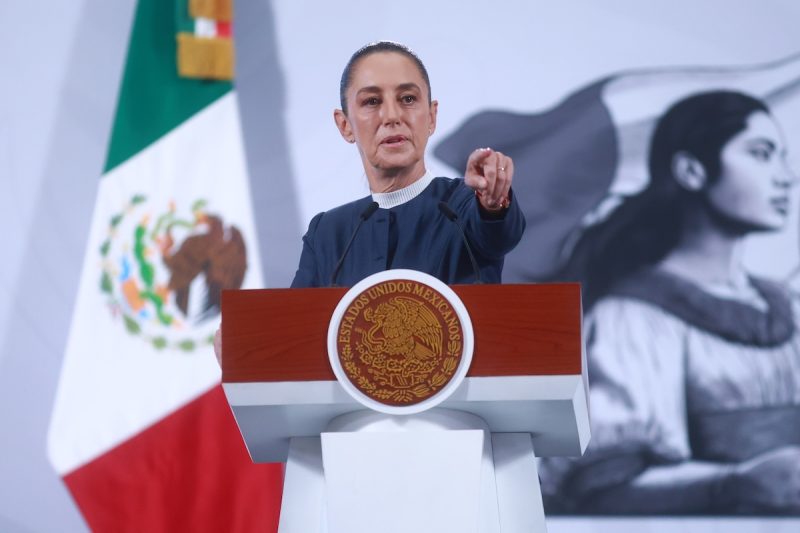
With Donald Trump reigniting a trade war, Mexico is weighing new options beyond its northern neighbour.
Emmanuel Macron’s visit to Mexico on Friday aims to reaffirm multilateral ties and deepen economic relations as President Claudia Sheinbaum seeks to ease the country’s heavy reliance on the US, which still absorbs more than 84% of Mexican exports.
Agenda
📍 COP30 in Belém, Brazil, attended by António Costa and Ursula von der Leyen
📍 Coreper I meeting
📍 Roberta Metsola visits Moldova
Contributors: Jacob Wulff Wold, Nikolaus J. Kurmayer, Magnus Lund Nielsen, Elisa Braun, Thomas Møller-Nielsen, Inés Fernández-Pontes, Laurent Geslin, Aleksandra Krzysztoszek, Natália Silenská, Alessia Peretti, Aneta Zachová
Editors: Christina Zhao, Sofia Mandilara
CORRECTION: Friday’s edition of Rapporteur has been updated to clarify that EU Ombudsman Teresa Anjinho was represented by Director of Administration Marie-Pierre Darchy at the budgetary control meeting. It also misspelled the name of her former secretary-general, Ian Harden.
